第41章 VII (4)
"Is this you, Hepzibah?" he murmured sadly. then, more apart, and perhaps unconscious that he was overheard, "How changed! how changed! And is she angry with me? Why does she bend her brow so?"Poor Hepzibah! It was that wretched scowl which time and her near-sightedness, and the fret of inward discomfort, had rendered so habitual that any vehemence of mood invariably evoked it. But at the indistinct murmur of his words her whole face grew tender, and even lovely, with sorrowful affection; the harshness of her features disappeared, as it were, behind the warm and misty glow.
"Angry! she repeated; "angry with you, Clifford!"Her tone, as she uttered the exclamation, had a plaintive and really exquisite melody thrilling through it, yet without subduing a certain something which an obtuse auditor might still have mistaken for asperity.
It was as if some transcendent musician should draw a soul-thrilling sweetness out of a cracked instrument, which makes its physical imperfection heard in the midst of ethereal harmony,--so deep was the sensibility that found an organ in Hepzibah's voice!
"There is nothing but love, here, Clifford," she added,--"nothing but love! You are at home!"The guest responded to her tone by a smile, which did not half light up his face. Feeble as it was, however, and gone in a moment, it had a charm of wonderful beauty. It was followed by a coarser expression; or one that had the effect of coarseness on the fine mould and outline of his countenance, because there was nothing intellectual to temper it. It was a look of appetite.
He ate food with what might almost be termed voracity; and seemed to forget himself, Hepzibah, the young girl, and everything else around him, in the sensual enjoyment which the bountifully spread table afforded. In his natural system, though high-wrought and delicately refined, a sensibility to the delights of the palate was probably inherent. It would have been kept in check, however, and even converted into an accomplishment, and one of the thousand modes of intellectual culture, had his more ethereal characteristics retained their vigor. But as it existed now, the effect was painful and made Phoebe droop her eyes.
In a little while the guest became sensible of the fragrance of the yet untasted coffee. He quaffed it eagerly. The subtle essence acted on him like a charmed draught, and caused the opaque substance of his animal being to grow transparent, or, at least, translucent; so that a spiritual gleam was transmitted through it, with a clearer lustre than hitherto.
"More, more!" he cried, with nervous haste in his utterance, as if anxious to retain his grasp of what sought to escape him. "This is what I need! Give me more!"Under this delicate and powerful influence he sat more erect, and looked out from his eyes with a glance that took note of what it rested on. It was not so much that his expression grew more intellectual; this, though it had its share, was not the most peculiar effect. Neither was what we call the moral nature so forcibly awakened as to present itself in remarkable prominence.
But a certain fine temper of being was now not brought out in full relief, but changeably and imperfectly betrayed, of which it was the function to deal with all beautiful and enjoyable things.
In a character where it should exist as the chief attribute, it would bestow on its possessor an exquisite taste, and an enviable susceptibility of happiness. Beauty would be his life; his aspirations would all tend toward it; and, allowing his frame and physical organs to be in consonance, his own developments would likewise be beautiful. Such a man should have nothing to do with sorrow; nothing with strife; nothing with the martyrdom which, in an infinite variety of shapes, awaits those who have the heart, and will, and conscience, to fight a battle with the world.
To these heroic tempers, such martyrdom is the richest meed in the world's gift. To the individual before us, it could only be a grief, intense in due proportion with the severity of the infliction. He had no right to be a martyr; and, beholding him so fit to be happy and so feeble for all other purposes, a generous, strong, and noble spirit would, methinks, have been ready to sacrifice what little enjoyment it might have planned for itself, --it would have flung down the hopes, so paltry in its regard,--if thereby the wintry blasts of our rude sphere might come tempered to such a man.
Not to speak it harshly or scornfully, it seemed Clifford's nature to be a Sybarite. It was perceptible, even there, in the dark old parlor, in the inevitable polarity with which his eyes were attracted towards the quivering play of sunbeams through the shadowy foliage. It was seen in his appreciating notice of the vase of flowers, the scent of which he inhaled with a zest almost peculiar to a physical organization so refined that spiritual ingredients are moulded in with it. It was betrayed in the unconscious smile with which he regarded Phoebe, whose fresh and maidenly figure was both sunshine and flowers,--their essence, in a prettier and more agreeable mode of manifestation. Not less evident was this love and necessity for the Beautiful, in the instinctive caution with which, even so soon, his eyes turned away from his hostess, and wandered to any quarter rather than come back. It was Hepzibah's misfortune,--not Clifford's fault.